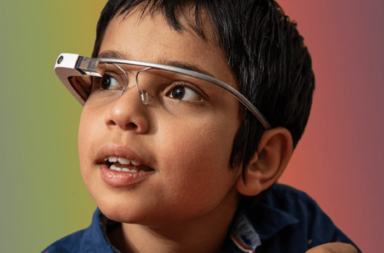When it was announced that the Blue Ranger was to be reimagined as an autistic lead, in the 2017 reboot of Power Rangers, there was an overwhelming cheer from the autistic community. With many praising the change for bringing autistic representation to the summer blockbuster and others going so far as to say that it was the PERFECT way to break down barriers between the general cinema going audience and the autistic community – it’s safe to say that the Power Rangers was a highly anticipated release.
So, with the 25 year anniversary of the Mighty Morphin Power Rangers taking place next week, today I wanted to revisit 2017’s Power Rangers, to discuss why the Blue Ranger being autistic was so remarkable, as well as offer my opinion on why this landmark moment has somehow been forgotten.
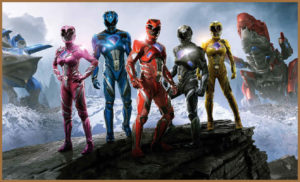
How does the Blue Ranger Represent Autism?
Perhaps the most glaring reason there is so little discussion surrounding the Blue Ranger being autistic is the fact that, upon our hero, Billy Cranston’s, introduction in the 2017 film, it was plain to see that, instead of the groundbreaking autistic portrayal we anticipated, we were given yet another Hollywood autism caricature I.e. the socially awkward genius/savant who takes things just a bit too literally. However, whilst I am just as tired as everyone else from seeing this kind of autistic depiction on screen, I believe there is more wrong with the Blue Ranger’s depiction of autism than the fact it retreads old ground.
From creating scenarios where the Blue Ranger’s autism means he trusts the wrong people, to having him cope with the death of a parent, for myself and many others, Billy Cranston’s autistic representation is more infuriating than inspiring due to the way in which it mishandles many incredible opportunities to explore these complicated topics.
For me, the worst example of this is a thread within the film in where Billy is being bullied BECAUSE he is autistic – something many autistic people can sadly relate to. You would be right in thinking that this is a great chance to discuss how bullying can affect its victims. However, instead Power Rangers inexplicably resolves this storyline with the message, ‘to beat a bully you must beat up the bully’ (hmmm, not exactly inspirational).
Although these moments are bad enough by their own merit, I personally found the lack of resolve to the bullying line additionally frustrating, as it could easily have been a chance for the series to find some redemption for what happened in the 1990s show; where blue ranger actor David Yost was harassed into leaving the show and contemplated suicide after disclosing his sexuality to the producers.
Fortunately though, the Blue Ranger’s depiction of autism isn’t entirely flawed…
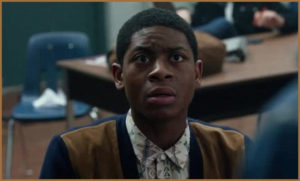
Why the Autism Community NEEDS an Autistic Blue Ranger:
It’s hard to believe that, despite autistic people almost entirely being depicted in movies as having superhuman abilities, it wasn’t until this 2017 film that a representative of our incredible community was finally portrayed as an actual superhero (and what a portrayal it is!).
Seeing an autistic superhero is awesome. Not simply because it’s inspiring to see someone who is meant to have walked in our shoes defy expectations and kick-ass, but because, when done well, this kind of representation shows us that we don’t have to defy expectations to be great. We just are.
Yes, it’s annoying that the Blue Ranger’s personality is defined by previous autistic archetypes but when this persona is used to position the Blue Ranger as, not only the voice of reason but in many scenes, the film’s true hero, it’s hard not to be distracted from his shortcomings.
With all the change that Billy brings, can I recommend this film? Sadly, no.
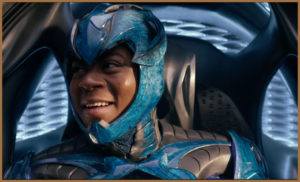
Power Rangers Review:
Growing up in the 90s, Power Rangers was a mainstay of my weekday viewing. It was fun, campy and had a bit of something for everyone (and when I say everyone, I mean everyone).
For autistic people in particular, Power Rangers contained: a predictable plot, as every episode was essentially the same and, as the lead characters were easy to distinguish (thanks to their bright coloured suits), the show was ideal for those of us who suffer from face blindness. It even had giant robotic dinosaurs – and we all know how autistic people LOVE dinosaurs.
The problem is, although all these elements are present in the new film (even going as far as replicating the original Go Go Power Rangers theme tune), the movie relies too hard on portraying these elements as dark and gritty (coming across as more of a Stranger Things/chronicle knock-off than the Saturday morning romp, which many will have purchased tickets to see (the characters don’t even change into the Power Rangers until _1 hour and 30 minutes in ‘aye yai yai!’).
Thankfully the cast is generally likeable and each one of the young actors puts in a solid performance as part-time troubled teens, part-time Power Rangers. However, some off inclusions such as the brilliant Elizabeth Banks, as the terrifying Rita Repulsa, largely feel out of place – I mean why in a film which is aimed at children is there a character who walks around ripping teeth out of people’s skulls to build a staff?
This complicated mix of elements make for an uneasy watch that would be impossible to recommend to any reader of this site and, as for the Blue Ranger being a role model for young autistic people, well, I’m afraid we’ll never know, as no child should be watching a film which contains so many scary moments and, inexplicably, opens with a joke about accidentally masturbating a cow (yep, that’s a thing).
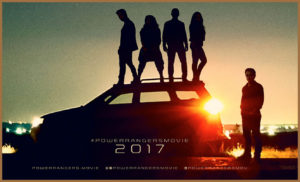
Carry on the Conversations:
Have you seen Power Rangers? How did you think the film handled its portrayal of autism? Let me know your thoughts in the comments below.
As always, I can also be found on Twitter @AutismRevised and via my email: AutisticandUnapologetic@gmail.com.
If you like what you have seen on the site today, then show your support by liking the Autistic & Unapologetic Facebook page. Also, don’t forget to sign up to the Autistic & Unapologetic newsletter (found on the sidebar on laptops and underneath if you are reading this via mobile) where I share weekly updates as well as a fascinating fact I have found throughout the week.
Thank you for reading and I will see you next Saturday for more thoughts from across the spectrum.
(Photo credit for featured image: Lionsgate)


